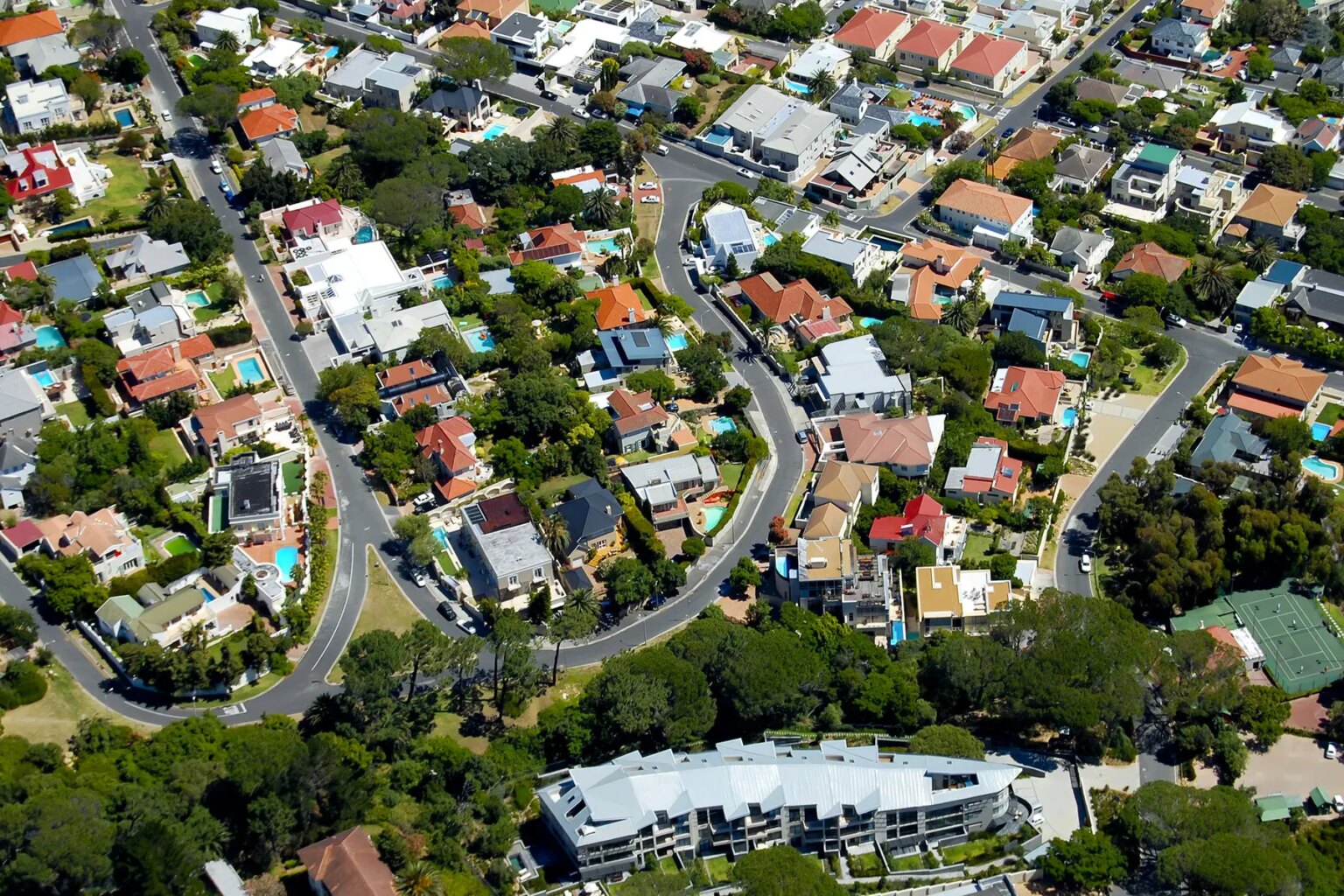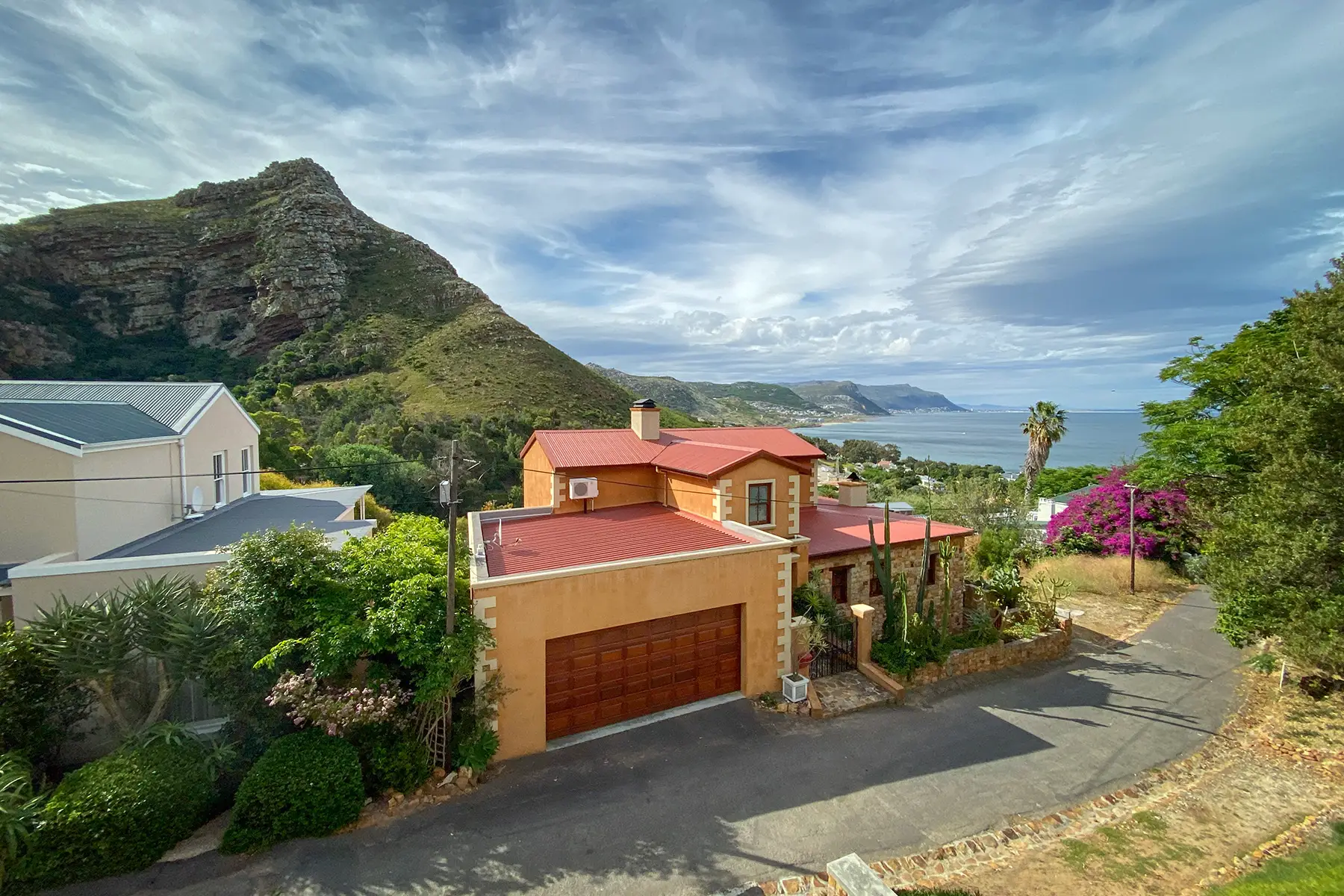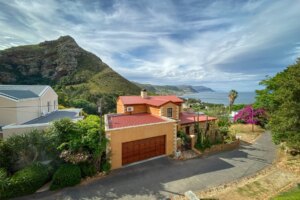Expats hoping to buy property in South Africa will be pleased to know that there are no legal restrictions preventing foreigners from applying for a mortgage. Most of the country’s major banks offer home loans to non-residents, with both fixed-rate and variable interest options available. However, while the application process is open to foreigners, there are typically limitations on the amount expats can borrow.
Keep reading for more on the following topics:
- Mortgages in South Africa
- Can you get a mortgage as a foreigner in South Africa?
- Mortgage rates in South Africa in 2025
- How much can you borrow for a South African mortgage?
- Common types of mortgages in South Africa
- Mortgages for other purposes
- Are there any green mortgage schemes in South Africa?
- How do you apply for a mortgage in South Africa?
- What mortgage fees can you expect to pay in South Africa?
- Does South Africa tax mortgages, and can you claim tax relief?
- Should you purchase home insurance in South Africa?
- Making payments on your South African mortgage
- Refinancing a mortgage in South Africa
- Useful resources
Wise
Buying property abroad is a big step and involves important financial decisions. Wise, an international money transfer company, provides specialist support to help you navigate large international transfers and save on exchange fees. Fill out Wise’s online form today to find out how they can assist you.
Mortgages in South Africa
According to the 2024 General Household Survey, 62.9% of households in South Africa own their home. Just over half (53%) of purchases in 2023 were made with a mortgage, commonly called a ‘bond’ or ‘housing bond.’
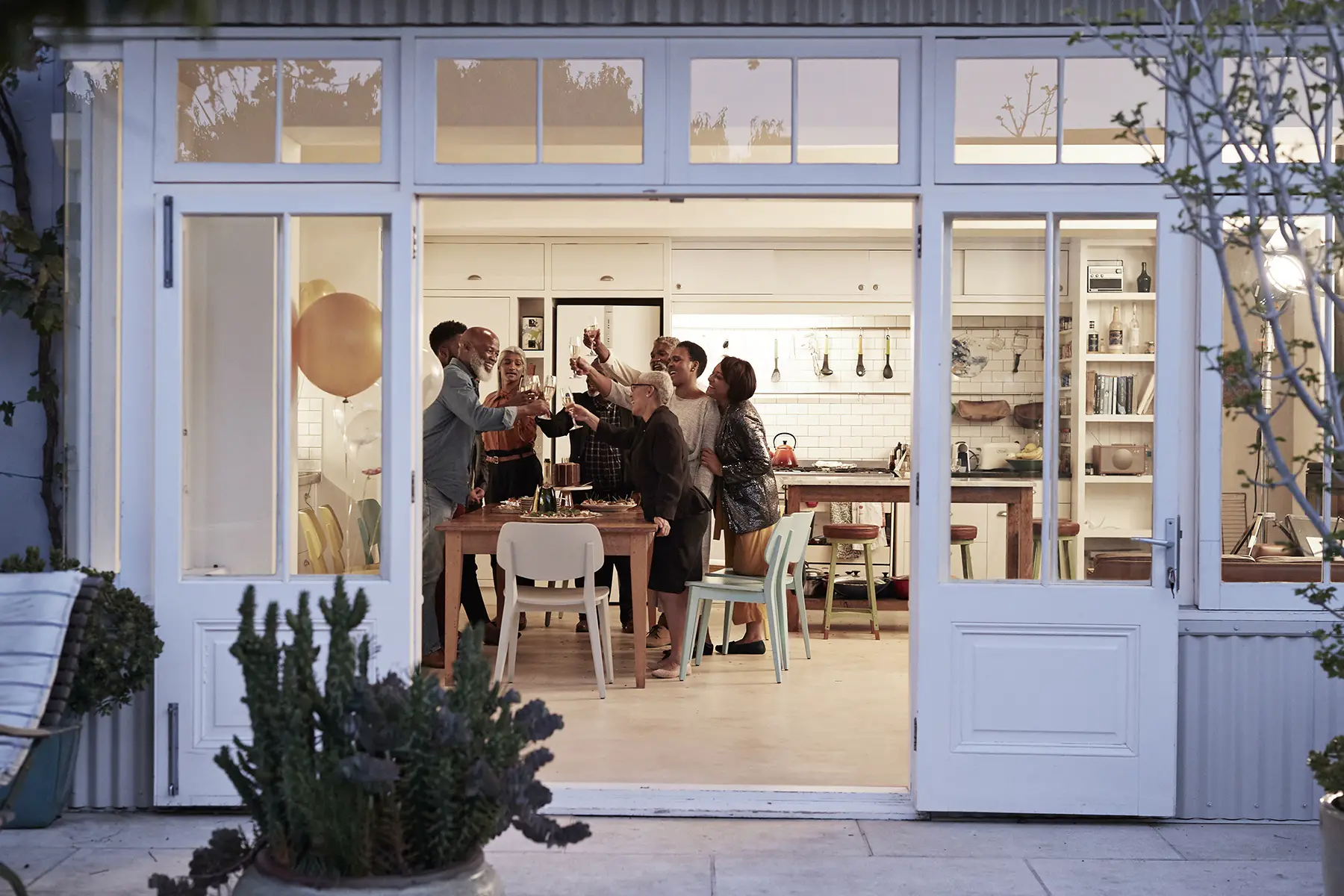
You can get a mortgage in South Africa through a bank or a financial institution such as a mortgage broker. Most of the major banks offer mortgages to foreigners in South Africa.
Mortgage interest rates in South Africa have recently started to fall slightly, following a two-year period between 2021 and 2023 where they rose by nearly five percentage points. The rate at the end of 2024 stood at 11.25%.
Can you get a mortgage as a foreigner in South Africa?
There are no legal restrictions on expats taking out a South African mortgage. As a foreign borrower, however, you must adhere to stricter rules than South African citizens.
For instance, foreign residents and non-residents must first get a certificate from the South African Reserve Bank (SARB) proving that they are entitled to get a mortgage in South Africa. The other key barrier is the significant deposit you’ll need.

Some newcomers may benefit from more lenient lending criteria if they have South African residence or a work visa. Banks may allow you to borrow 75% of the property’s value in these instances. This varies, so consider taking advice from a mortgage broker on your options if applicable.
Banks in South Africa may also require you to set up a bank account to deduct your monthly mortgage repayments. When applying for a mortgage as an expat, you’ll usually require the following documents:
- A certificate from the SARB
- Proof of your South African residence status (if applicable)
- Identification (such as a passport)
- Proof of finances (recent bank statements)
- Proof of income (recent pay checks and employment contract)
Mortgage rates in South Africa in 2025
Mortgage rates in South Africa are linked to the ‘repo’ (repurchase) rate. This has been fairly stable over the past couple of years, experiencing only a slight fall. You can find the latest repo rate, along with other money market rates, on the South African Reserve Bank (SARB) website.
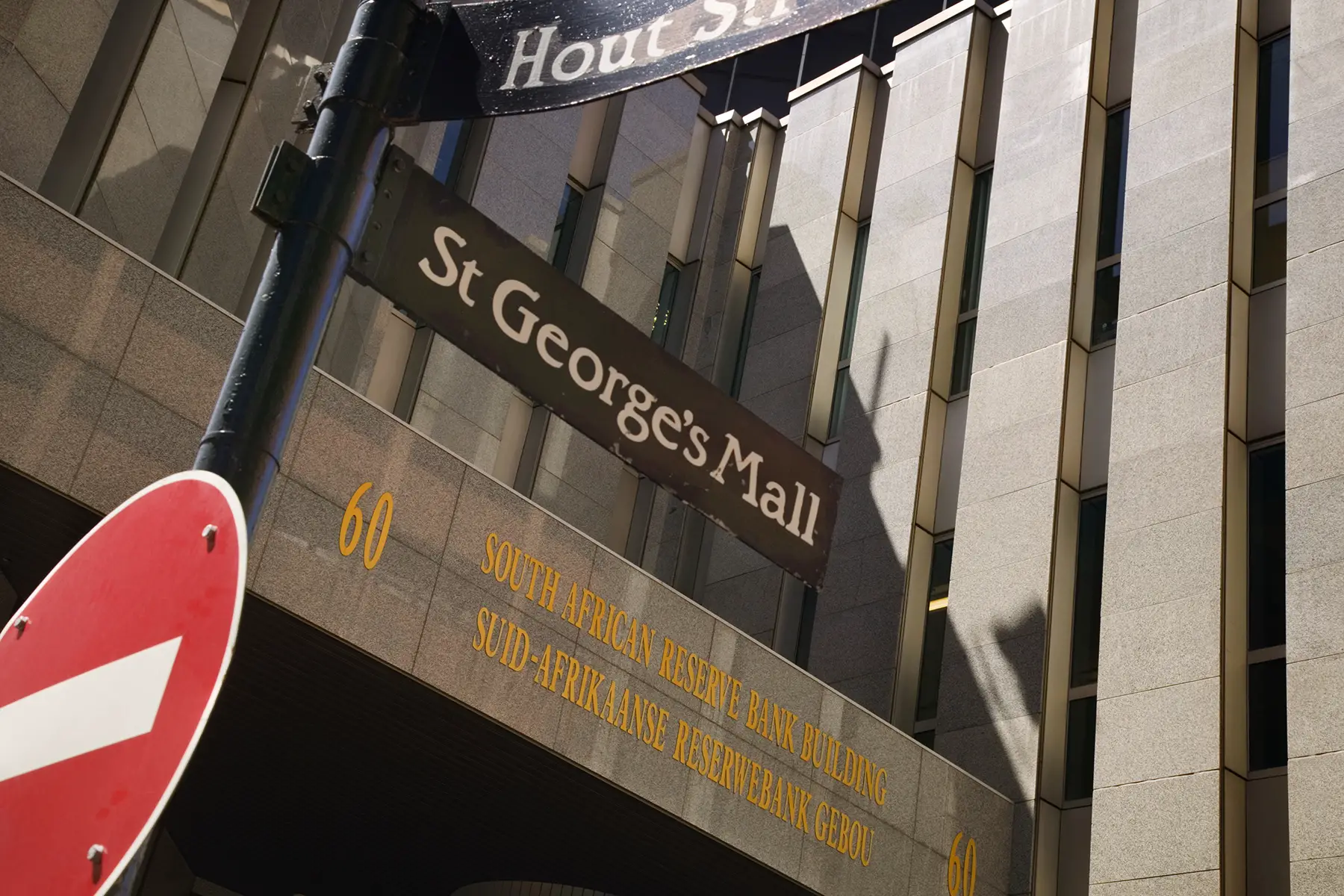
Banks use the prime rate to determine the consumer mortgage. They will likely offer you a deal close to the prime rate if you have a low-risk profile. If you’re considered a higher risk, the lender will add a bigger margin to the prime rate.
Generally speaking, it’s unlikely that a bank will offer you a rate much lower than the prime rate, even if you have an excellent risk profile, as it will narrow the bank’s profit margin too much.
When banks offer variable-rate mortgages, they charge the prime rate plus or minus a specific margin. For example, if your mortgage is offered at the prime rate plus 2%, and the prime rate is 11%, you’ll pay 13%.
How much can you borrow for a South African mortgage?
International borrowers in South Africa are limited to borrowing 50% of the total value when they take out a mortgage. This means you’ll need a pretty big deposit to buy a home.
Banks will also determine how much you can borrow based on your credit history and income. A good credit history will assure the lender that you’re a less risky proposition, increasing the chances of getting a good rate and being able to borrow more.
The amount you can borrow is also linked to how much you earn. Although there is no minimum income for taking out a mortgage, most banks in South Africa will only allow your monthly repayments to be 30% of your income.
Mortgage terms in South Africa are most commonly 20 years, though it can be possible to take out a 25-year or even 30-year mortgage in some circumstances. Usually, you must settle your mortgage in full by the time you reach the age of 70.
South African mortgage calculator
An online mortgage calculator can estimate how much you can borrow when taking out a South African mortgage.
Common types of mortgages in South Africa
There are two main types of mortgages in South Africa: fixed and variable rates.
Fixed-rate mortgages
With a fixed-rate mortgage, your rate will be predetermined at a specific amount for a set period (usually five years). This allows you to budget for the longer term without worrying about your repayments changing monthly.
When you reach the end date (i.e., fixed time frame), the lender will revert your mortgage to a variable rate, or you can negotiate a new fixed term with the bank. Fixed-rate mortgages offer peace of mind but can be more expensive than variable-rate deals.
Variable rate mortgages
Variable-rate mortgages are the most common type of home loan in South Africa. The cost of variable-rate loans changes depending on rates set by the SARB.

In simple terms, the SARB sets a rate it lends to banks (the repurchase rate or ‘repo’). This then determines the prime interest rate, which banks use to set consumer mortgage rates. The prime rate is always higher than the repo rate because this is how banks profit from home loans.
Variable-rate mortgages in South Africa tend to be more popular when the repo rate, and thus the prime rate, is low.
Mortgages for other purposes
South African banks also offer loans for projects other than purchasing a main residential home, for example, holiday homes, buy-to-let properties, commercial buildings, and renovations.
- Second mortgages for holiday homes: second mortgages or home equity loans (with different terms and interest rates) that allow homeowners to borrow against the equity in their primary residence to finance the purchase of a holiday home. The purchased property secures the loans.
- Buy-to-let mortgages: for individuals or investors purchasing properties to rent them out (with different interest rates and requirements based on the needs of landlords)
- Commercial mortgages: for businesses and property investors looking to purchase or refinance commercial properties, such as office buildings, retail spaces, and industrial properties
- Home renovation mortgages: secured by the property value to finance home improvement projects, especially if these increase the home’s energy rating
As the types of mortgages, lending criteria, and rates differ between financial institutions, it is best to shop around for the best mortgage to suit your situation and budget.
Are there any green mortgage schemes in South Africa?
Although the South African government wants to improve sustainability practices across all sectors, it does not have a nationwide green mortgage scheme. However, the International Finance Corporation (IFC) has started some initiatives and has set up partnerships with some banks to support green building and home financing. Furthermore, some municipalities may have local green initiatives or pilot programs to encourage eco-friendly home improvements.
Additionally, some residents are seeking greener energy resources, such as solar panels, due to the country’s energy crisis. However, many people cannot afford this option.
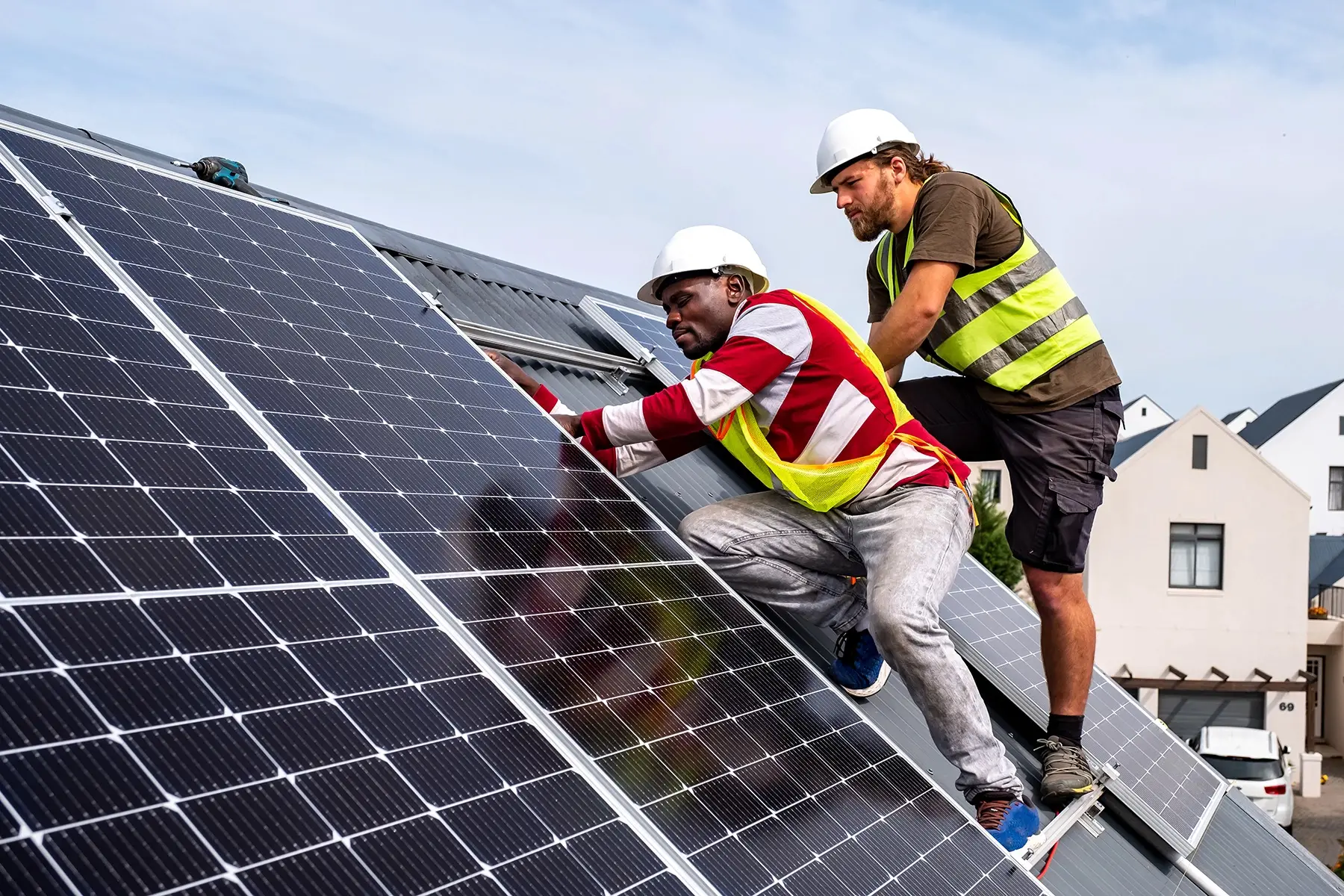
Some banks do offer an “energy home loan” to help homeowners afford energy-sufficient renovations. In practice, it uses the funds from an existing home loan or adds extra funds to top up a new mortgage for these purposes.
The African Development Bank (AfDB) also established its Sustainable Bond Program in 2023, formerly the Green Bond Program. This encourages sustainable financial development in African countries, including South Africa. To access Sustainable Bonds, a property should meet certain resource-efficient building practices, for example an Excellence in Design for Greater Efficiencies (EDGE) certification.
The residential property sector has welcomed this initiative as it includes advantages for property owners and the environment, such as:
- Access to better financing terms and a reduction of interest rates on your home loan
- More energy-efficient homes that are environmentally friendly with lower utility costs
- Resale value for properties with an EDGE certification is higher
Banks offering green mortgages
Fortunately, the number of banks and lenders offering sustainable financing is growing and includes:
- Absa
- First Rand Bank (i.e., the retail division of FNB)
- Investec
- Nedbank
- Standard Bank
As this list is not exhaustive, it is a good idea to discuss these green mortgage incentives with your prospective lender before applying for a home loan.
How do you apply for a mortgage in South Africa?
Before taking out a mortgage in South Africa, you should get approval in principle (AIP). This involves a bank evaluating your creditworthiness and indicating how much it will be willing to lend you subject to a full application.
It usually only takes a few days to obtain an AIP. Once you’ve got one and you have an offer accepted on a home, the bank will send a valuer to view the property and confirm it is willing to lend the pre-approved amount.
After this step, you’ll complete a formal application, and, all being well, the bank will grant the mortgage.

Through a bank
All major South African banks offer mortgages to expats, including:
- Absa
- Capitec
- First National Bank (FNB)
- Nedbank
- Standard Bank
Through a mortgage broker
Most prospective home buyers approach traditional banks in South Africa for home loans. However, there are also a few mortgage brokers in South Africa as well as other financial service providers across the country that can assist you, for example:
- MortgageMax Devpro Nationwide Home Loans
- Mortgage Market
- Investec
- SA Home Loans
Mortgage applications step-by-step
- Obtain a certificate from the SARB to confirm you’re eligible for a mortgage
- Compare deals directly with banks or by using a mortgage broker
- Choose a lender and request an AIP
- Once you’ve found a property and the seller accepted your offer, formally apply for the mortgage and confirm the exact deal and rate you’ll be taking
- Pay your mortgage deposit to secure the property and agree on a completion date when the lender will transfer the money to the seller
What mortgage fees can you expect to pay in South Africa?
You’ll need to consider several additional fees when buying a house in South Africa, such as:
- Transfer duty
- Bond registration fee
- Initiation fee
Most notable is transfer duty, which is charged when purchasing properties worth more than R1 million.
When it comes to mortgage fees, the first you’ll need to pay is the bond registration fee, which covers the cost of registering your mortgage. How much you’ll pay is based on a sliding scale depending on the property’s value.
Additionally, the bank will usually charge an initiation fee for setting up the mortgage. This is a flat, one-off fee you can pay up-front or add to your mortgage account.
You can use an online calculator to estimate your transfer costs. For example, Ooba calculates that on an R1 million mortgage, you’d pay a bond registration fee of R28,244 (plus VAT) and a bank initiation fee of just over R6,000 (0.6%).
Does South Africa tax mortgages, and can you claim tax relief?
In South Africa, you pay property taxes, without any deductions available for owner-occupier mortgages. Mortgage interest is only tax deductible for second homes and properties bought as buy-to-let investments.
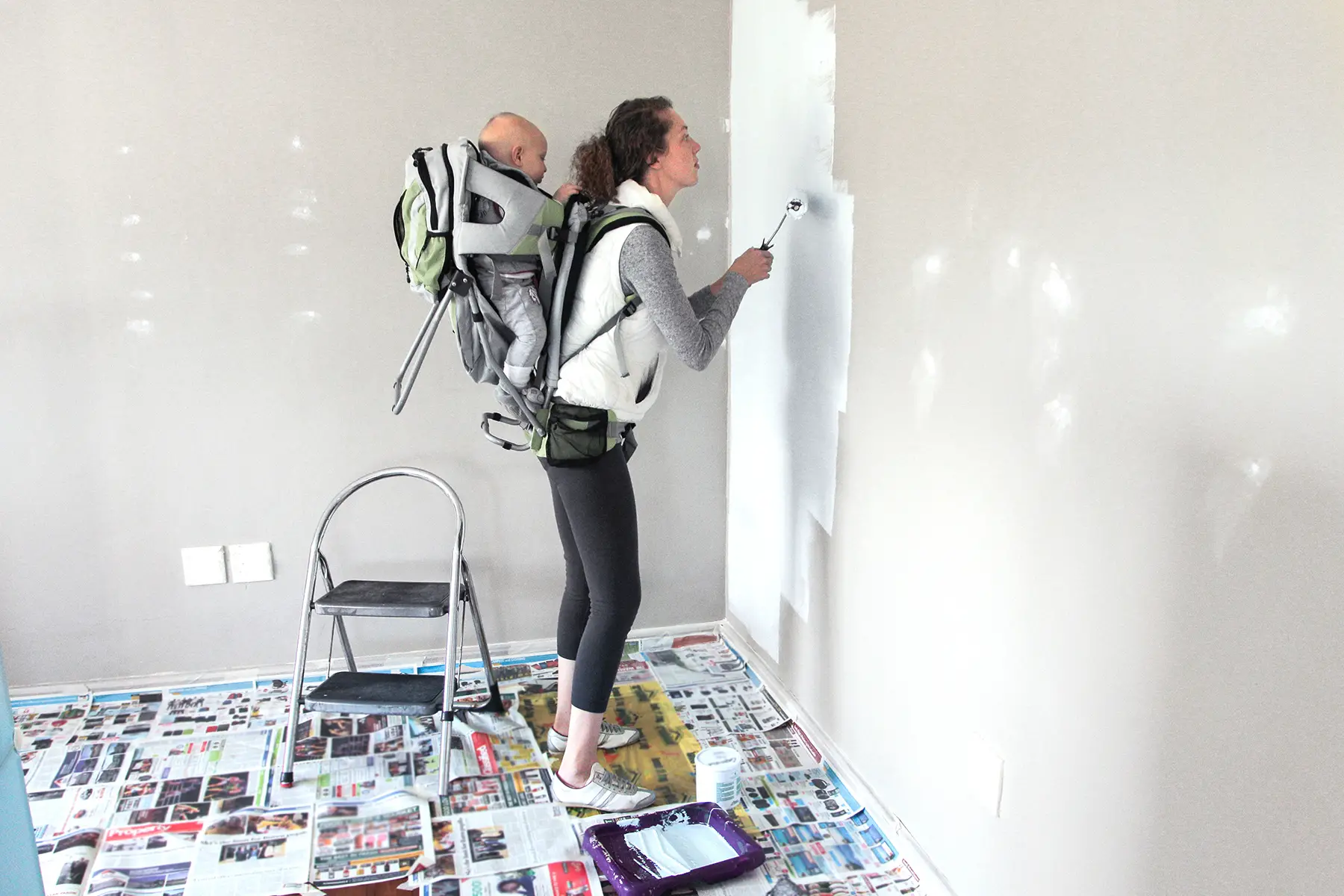
If you purchase a home for buy-to-let purposes, you can offset mortgage interest and a range of other costs (e.g., letting agent fees, insurance premiums, and the cost of repairs) when calculating how much tax you’ll need to pay on your rental income.
Should you purchase home insurance in South Africa?
When taking out a mortgage in South Africa, you’ll usually need building insurance. This offers protection if the property structure is seriously damaged, for example, if there’s a fire or flood.
It’s not compulsory to purchase contents insurance to protect your belongings against such eventualities and burglaries, but it will give you additional peace of mind.
South African lenders sometimes require mortgage protection cover should you become seriously ill or die and cannot repay your home loan. For most borrowers, coverage is optional, but if you’re purchasing an affordable home or borrowing a large sum, it may be compulsory.
If you take out a policy, you’ll need to ensure its maximum protection level is high enough to cover your mortgage repayment in full.
Making payments on your South African mortgage
Your mortgage payments will come out on the same agreed date each month. South African banks will usually allow you to make overpayments to clear your debt quicker, but the exact rules vary from lender to lender.
If you’re struggling to make your mortgage payments, contact your lender immediately, as it may be able to offer you support.
Refinancing a mortgage in South Africa
Refinancing your home can be a sensible move if you’ve owned it for several years, as it enables you to use the equity you’ve built up to reduce your monthly payments.
Alternatively, some homeowners refinance to release equity from their property, for example, to fund home improvements. You may need to pay new bond registration and bank initiation fees when refinancing your deal.
